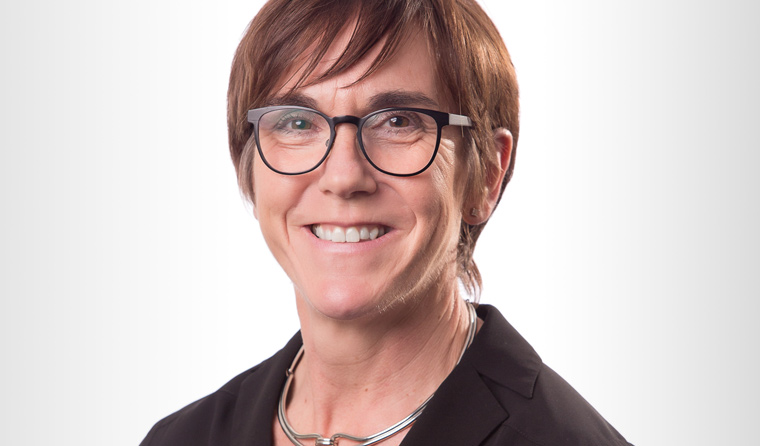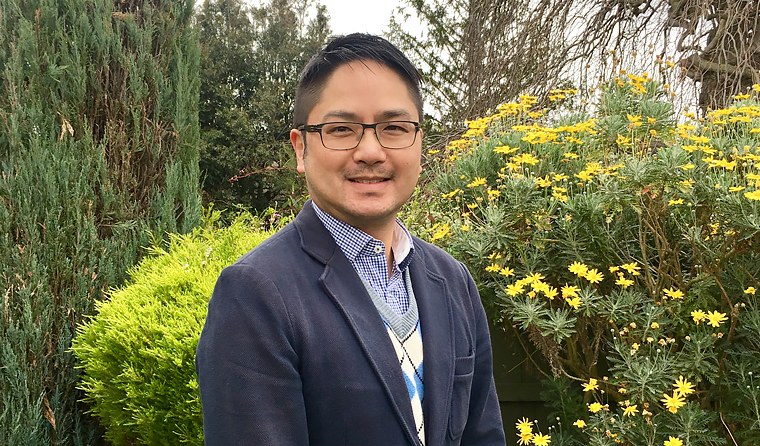News
Project refresh to guide supportive care in cancer
A newly updated project is set to revise efforts to embed supportive care as an essential component of quality cancer care across Victoria.
 The project aims to embed supportive care as a vital aspect of cancer care.
The project aims to embed supportive care as a vital aspect of cancer care.
A University of Melbourne-based research team is leading the two-year Supportive cancer care refresh project, which has been funded by the Department of Health following calls to revisit supportive care in cancer to optimise patient experience and outcomes.
The first Victorian cancer supportive care policy was developed 10 years ago to introduce an expectation that all newly-diagnosed patients with cancer would have their supportive care needs screened.
Professor Mei Krishnasamy, project lead and Chair in Cancer Nursing at the University of Melbourne’s Centre for Cancer Research, found that the last decade has seen variable success with the integration of such cancer supportive care.
‘Some organisations have managed only a 6–10% screening target, whereas others have managed 80–90%,’ she told newsGP.
‘[But] there was the expectation that 50% of newly-diagnosed cancer patients would have their needs met as a benchmark … so this formed the impetus for the project.’
Supportive care can be viewed as a ‘broad umbrella of needs that people have’ – whether emotional, informational, physical, social, spiritual – in response to a diagnosis of cancer, according to Professor Krishnasamy.
‘Having the support with these things enables people to continue with the demands of treatment, and for some people, actually makes a difference to whether they continue with treatment and whether they can tolerate the distress and burden of having a cancer diagnosis,’ she said.
‘Although [these needs] are often hidden elements of cancer care, they are often the platform of a bedrock that makes the diagnosis, treatment and side effects tolerable for people.
‘And when they are not addressed, this can be the thing that tips people over the edge, for both the patient and family … so there’s a need to reconsider the way in which we’re trying to implement supportive care screening.’

Professor Mei Krishnasamy says the project provides important educational modules for both patients and healthcare providers in cancer care.
The project, which began with broad consultation across patients, healthcare providers, carers, and non-government organisations, aims to refresh the supportive care resources available to organisations and assess what new resources are needed, given the changes in cancer care –treatment, patient growth, disease complexity – since the initial policy was developed 10 years ago.
‘Based on our broad consultations, we did a study of the perspective of consumers and multidisciplinary clinicians to be able to help us think about what are the important things we need to consider in a refresh project around updating existing resources and approaches, as well as developing new ones,’ Professor Krishnasamy said.
From that data, the research team was able to come up with a consensus plan and try to address the barriers with supportive care. Patient hesitancy was found to be a key barrier.
‘People [consumers] from the study said they are not really sure how to ask [about supportive care] and are a bit scared to ask,’ Professor Krishnasamy said.
‘They don’t expect the clinicians to have all the answers or to know about every single resource out there, but they do expect them to be able to help find them.’
Among the resources the project team developed is a ‘one-stop shop for cancer information’ website featuring a series of videos with consumers talking about the supportive care available. Professor Krishnasamy emphasises this is an important educational component for both patients and healthcare providers.
‘The consumers talk [in the videos] about the support and advice they deserve, have a right to and that are really important at any stage across their cancer diagnosis,’ she said.
‘The consumer-to-clinician videos say:
Just ask us if we need help with anything. Is there something troubling us, and do we want help with it, and who will we want that help from? We need clinicians to ask us about our supportive care needs because it really makes a difference and there are risks if you don’t ask because we may struggle to get through our treatment or withdraw, or we may end up with anxiety or depression or financial toxicity.
‘It’s also about raising awareness from consumer to consumer, so that consumers know what supportive care is and they have a right to access it, and who to ask and where to get it.’
Professor Krishnasamy believes identifying patient needs proves beneficial to not only the patient with cancer, but all involved care providers.
‘The website helps to take that pressure off the clinician by navigating their patients to the website, because that takes the onus, responsibility and burden off the clinicians when they’re having the conversation [with cancer patients] about, “Am I going to die, what is my treatment going to do to me?”.’
The website also provides patients with an oversight and understanding of what an optimal care pathway for them should and could look like, and a ‘stress barometer’ and problem check list to complete and take to their supportive care provider.
 Associate Professor Justine Tse believes that supportive care is already part of the holistic care GPs are well placed to provide.
Associate Professor Justine Tse believes that supportive care is already part of the holistic care GPs are well placed to provide.
Associate Professor Justin Tse, a GP, Director of Medical Student Education, St Vincent’s Clinical School at the University of Melbourne, and Cancer Council of Victoria Research Fellow, agrees that GPs can benefit from the project in supporting their patients.
‘We want to embed supportive care as an essential component of quality care to optimise patient experiences,’ he told newsGP.
Part of the project includes new educational modules available on cancer resource website eviQ, where GPs and other healthcare providers can participate in tailored online learning.
‘These resources provide a refresh on this important topic,’ Associate Professor Tse said.
‘Our aim is to raise awareness, identify and be proactive in saying, for example, “We can see that you are three years’ post your breast cancer, how is everything going?”
‘And look at the services available in the community to support patients.’
Associate Professor Tse also sees this as particular important in the area of cancer care.
‘We have an ageing population and the incidence of cancer is going up,’ he said.
‘The good thing is that a lot of patients who have had cancer are now going back to their normal lives, but many of them will still have symptoms that require supportive care.’
Supportive care is already integrated into GPs’ role of providing a holistic model of care through prevention and guidance on lifestyle risk factors, according to Associate Professor Tse, and supportive care in cancer can present.
‘For many patients post-cancer, there is a transition back in to primary care and GPs are ideally suited to offer good-quality, ongoing comprehensive care and to raise supportive care questions to patients with their transition back to community care,’ he said.
‘The GP can then refer the patient to the appropriate service – that might a psychologist, a nutritionist, a pain specialist, an exercise physiologist.’
Professor Krishnasamy is confident the project will have positive outcomes on the community.
‘With this project we’re really hoping that by raising awareness, we increase supportive care activity and through this, we increase its impact,’ Professor Krishnasamy said.
The supportive cancer care refresh project officially launches in May, with a conference in Melbourne to release the resources. All general practices in Victoria will be provided with posters to put in waiting rooms, detailing the website and educational modules.
Cancer Cancer care GP education Supportive care Victoria
newsGP weekly poll
As a GP, do you use any resources or visit a healthcare professional to support your own mental health and wellbeing?